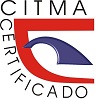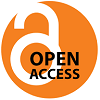Complementary Programs in the new conception of the institutional curriculum
Complementary Programs in the new conception of the institutional curriculum
Keywords:
complementary program, curricular conceptionAbstract
The Third Improvement, as a continuous process of the National Education System, began (2014) the pedagogical experimentation of the new forms of work in institutions and educational modalities in six provinces of the country and later, in its generalization stage (2018) it was extended to all provinces and popular councils. Our province, Havana, participated in both moments, and the San Agustín council was selected. Teaching materials were also implemented by groups and grades established in the different educations and modalities. The new ways of working led to transformations in the functioning of educational institutions and modalities, aimed at making the student the center of the educational process, managing to raise its quality based on the system of activities and relationships designed. The institutional educational project and the group educational project materialize the curriculum (forms of work). This includes the complementary activities that promote the identity of this institutional curriculum. Among its typology are complementary programs, the objective of this article. During the accompaniment carried out at the Eterno Baraguá institution of Primary Education in La Lisa, instruments were applied to update the teaching diagnosis and to carry out complementary activities based on the application of theoretical, empirical and mathematical methods, the need for continue training teachers in the selection and development of complementary programs. The methodological preparations carried out for this purpose caused a great impact, enabling the development of new complementary programs to attend to educational needs and the proposal to structure workshops to teach in the improvement course at the municipal level.
Downloads
References
Deler Ferrera, G y Ruiz Aguilera, F (2021). Tema 10. "El currículo institucional en la nueva concepción del modelo educativo". CD Curso de Posgrado ¨Gestión de las transformaciones en el contexto del III perfeccionamiento del SNE¨. ISBN 978-95918-1297-1. Proyecto Institucional “Gestión científica en el desarrollo educativo local y comunitario”. La Habana, Cuba.
Instituto Central de Ciencias Pedagógicas (ICCP). (2016). Documento Base para el perfeccionamiento del SNE. Material digitalizado. La Habana. Cuba.
Instituto Central de Ciencias Pedagógicas (ICCP) (2020). Propuestas para las transformaciones de las instituciones y modalidades educativas. Folleto. ICCP. La Habana. Cuba.
Castro Ruz, F. (1981) Discurso pronunciado en el acto de graduación de 10 658 egresados del destacamento pedagógico universitario "Manuel Ascunce Domenech"
Flores Linares, R. (2009). Metodología para el empleo del tangram como medio de enseñanza en el tratamiento de las figuras planas en el primer ciclo de educación primaria. [Maestría], Instituto Central de Ciencias Pedagógicas La Habana. Cuba
Ministerio de Educación (MINED). (2016) Perfeccionamiento del SNE. Ed: Pueblo y Educación. La Habana. Cuba.
Velázquez Cobiella, E.E. (2019) Conferencia Inaugural en el Congreso Internacional Pedagogía 2019. La Habana. Cuba.
Published
How to Cite
Issue
Section
License
Copyright (c) 2022 Raquel Eulalia Flores Linares, Daisy Herrera Jiménez

This work is licensed under a Creative Commons Attribution 4.0 International License.
Horizonte Pedagógico es una revista Open Access, lo que quiere decir que todo su contenido es accesible libremente sin cargo para el lector o su institución. Los usuarios están autorizados a leer, descargar, copiar, distribuir, imprimir, buscar o enlazar a los textos completos de los artículos de esta revista sin permiso previo del editor o del autor, de acuerdo con la definición BOAI de open access. Los autores que publican en esta revista están de acuerdo con los siguientes términos: Los autores conservarán los “Derechos de autor” y garantizan a la revista el derecho de ser la primera publicación del trabajo. La revista se encuentra protegida bajo una licencia internacional de Creative Commons Attribution License Atribución 4.0 Internacional (CC BY NC 4.0), que permite a otros compartir (copiar y redistribuir el material en cualquier medio o formato) y adaptar (remezclar, transformar y construir a partir del material), para cualquier propósito, incluso comercialmente. Bajo las siguientes condiciones: atribución (usted debe dar crédito de manera adecuada, brindar un enlace a la licencia, e indicar si se han realizado cambios y no comercial — Usted no puede hacer uso del material con propósitos comerciales. Puede hacerlo en cualquier forma razonable, pero no de forma tal que sugiera que usted o su uso tienen el apoyo de la revista o el autor de la publicación.






















